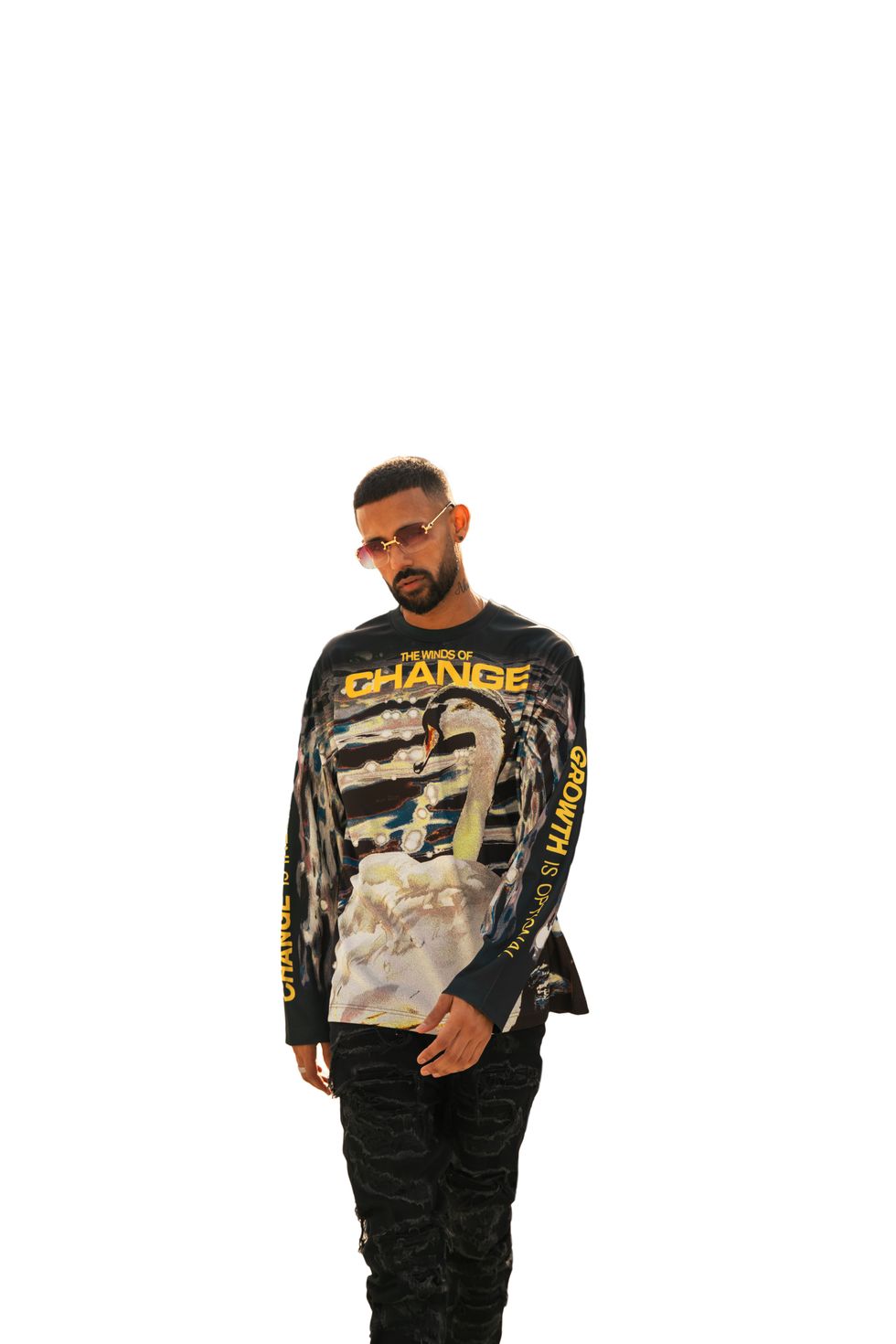By Amit Roy
ASIAN parents who discourage their children from going into the arts because "it's not a proper job and, also, there's no money In it" should have a little chat with Darren Henley.
The chief executive of Arts Council England is a persuasive man. Asian parents should consult two of his recent books - The Arts Dividend: Why Investment in Culture Pays and Creativity: Why it matters - where one of his most intriguing arguments is that there is a link between engaging in arts and culture and human happiness.
In any case, Henley can succinctly sum up for Eastern Eye what he says in the books and also offer a few tips to Asians: "It is really important that your children get a great education. I absolutely think that numeracy and literacy are really, really important pans of education, but for me, a great education has the third pillar, and that's about creativity.
"I think the best thing we can offer our young people to become a rounded human being is the ability to be creative themselves and to make their own artwork of one form or another, but also for them to experience the best of music and dance and drama and literature and visual arts and all the other art forms. Because what it does is it opens a young person's eyes to the world beyond their everyday existence.
"That is a very, very powerful thing because it shows a young person possibility of the world beyond themselves."
Henley can tell parents that the UK's creative industries, worth £100 billion a year, "are among the fastest-growing sectors in this country': One has to assume that the British-Asian contribution to this must be significant. He points out that someone like the dancer Akram Khan, son of a Bangladeshi curry house owner, now performs all over the world.
The Arts Council England distributes £750 million to organisations big and small. He explains: "The Arts Council does not in itself create work. What we do is create an environment in which artists can be created. I would say we are a development agency and we are here to champion and develop individual artists, arts organisations, museums and libraries. And that is quite a broad definition in each of those areas”.
Spirituality is something that Asian parents would understand and it is a philosophy to which he subscribes.
"This is a set of arguments around why investment in culture changes people's lives and I am quite unashamed about using a word like 'investment' instead of saying 'subsidy: I don't think we subsidise things - we make a series of investments. Some of those will have economic benefits, but I think investment has a different set of dividends and benefits in people's lives.
"So, it is very, very important, I think, for everybody to be able to be creative themselves and to have creativity around them and to meet creative people and to live in a society which values creativity. That is one of the dividends.
"I think there are some very strong dividends around health and well-being. We know those who have the arts and museums, libraries and culture more generally in their lives live happier, healthier lives. There is real scientific data that shows that.
"Happiness sometimes is undervalued, and we should always strive to have happy lives. Why are we here if we are not going to be happy? We know arts and culture help us to do that.
"I think also one of the dividends the arts world and culture more generally can do is around education. To my mind, every child should have a very enriching cultural set of experiences during their education. So, subjects like art and design and dance and drama and music are really central to every young person's life. And one of the things I always observe is that our most expensive private schools in this country are famous the world over because they do exactly that.
"I believe everybody from every background, wherever they are born in this country, whatever their economic situation, should have open to them a set of artistic and cultural experiences.
"You look at the people who run the country - they kind of look the same and they come from the same background. I am not sure that's necessarily right in 21st century England.
"One of the things I say a lot is that talent is absolutely everywhere, in every part of this country. But the opportunity for that talent to the surface isn't always there. So, one of the roles for an arts council is to identify ways of talent coming through.
"Henley did a degree in politics at Hull, followed by another in management from the University of South Wales and one from the University in Buckingham in the history of art. “I am just finishing doing a professional doctorate at Middlesex."
These days, he makes a point of spending half the week out of London, travelling by train and listening to audio books. “I travel all over the country."
In the week that Eastern Eye spoke to him, he had seen "four different pieces of regional theatre. One of the things I saw which I thought was absolutely fascinating was a great new musical in Sheffield called Standing at the Sky's Edge, which tells the story of Park Hill, a council estate which overlooks Sheffield."
He says he is "very, very pleased that one of our national portfolio organisations is the Milapfest in Liverpool - Samyo is their youth orchestra. I went to their concert. I think they have redefined Indian classical music and they are taking it back to India now”.
He acknowledges that there seem to be psychological barriers which somehow hold back Asian audiences from venturing into theatres, museums, art galleries and other cultural venues.
“We have to overcome it is Henley's response. "I recognise people from all sorts of backgrounds don't have a tradition of engaging with arts and culture and find a museum or a gallery or a theatre or a concert hall sometimes a scary place”.
He faced a similar challenge when he was managing director of Classic FM for 20 years. “We spent a lot of time thinking of how we could popularise the art form - because we were a commercial entity, we were not receiving money from anybody else. We had to create audiences and sustain those. And there was a lot of baggage around classical music. People felt it wasn't necessary for them”.
He refers to developments which are especially relevant to Asians. One is the new £5 million South Asia Gallery at Manchester Museum, being put together with the help of the British Museum.
Henley says: "One of the things that arts and culture can enable people to do is have a conversation. At the moment, our country is quite divided in many, many ways; certainly, different views around Europe. I think art and culture can bring people from different backgrounds and ideologies together.
"Creativity happens when you bring people together from different backgrounds, different life experiences, and different journeys to get to a particular place. That's why global cultures are so exciting. Some of the brightest and best sparks of creativity come about when different people who never met before sit together in a room”.
As an example, he recalls a programme called Reimagine India. "It brought artists from India to this country and took artists from this country to India. It's about bringing the best of the world here and also about taking the best of England out to the world”.
One of the books he read as a child that has stayed with him is George Orwell's Animal Farm. And two books that he would take to an imaginary desert island are by academics dealing broadly with the concept of happiness.
One is Empire of Things: How We Became a World of Consumers, from the 15th Century to the 21 by Frank Trentmann. The other by Paul Dolan, a behavioural scientist at the London School of Economics, is Happy Ever After: Escaping The Myth of The Perfect Life.
On the question of ethnic diversity in the arts, Henley says: "I believe very passionately that the workforce that creates art, the gatekeepers who make decisions about what art is created and the audiences that go to art and cultural institutions, shows, events, places, venues, should represent England in the 21st century. It should just be exactly what you would see as you walk down any street in any town or city in this country.
“We have come a bit of a way on the journey, but I don't think we are there yet by any means”.
















 Dhami calls the most heart-wrenching chapter of his life – the loss of his beloved brother and long-time musical collaboratorInstagram/ thejazdhami
Dhami calls the most heart-wrenching chapter of his life – the loss of his beloved brother and long-time musical collaboratorInstagram/ thejazdhami Dhami has teamed up with acclaimed composer Sumeet ChopraInstagram/ thejazdhami
Dhami has teamed up with acclaimed composer Sumeet ChopraInstagram/ thejazdhami

